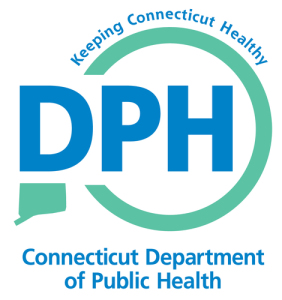 TO: All EMS Care Providers
TO: All EMS Care Providers
FROM: Raphael M. Barishansky, Director, Office of Emergency Medical Services
This year’s influenza or “flu” season has been producing a high number of cases. This communication highlights the scope of the problem and reminds providers to take all appropriate precautions to limit the spread of this illness. The Centers for Disease Control and Prevention have classified this year’s seasonal flu as an epidemic, with 47 states reporting widespread flu activity. The following are some Connecticut-specific statistics that DPH has collected and analyzed as of 1/09/2013:
- The percentage of outpatient visits with influenza-like illness (ILI – defined as a cough or sore throat in the absence of a known cause, and the presence of a fever > 100° F) is almost twice that of the previous two flu seasons
- There have been more persons hospitalized with influenza-associated illness during the past five weeks than the entire 2011-2012 flu season.
- There have been 55% more reports of positive laboratory tests for influenza for the first three weeks of this flu season compared to the entire 2011-2012 season.
- Respiratory influenza activity has most commonly peaked in February, so we may continue to experience a serious influenza season for some time to come. OEMS recommends that you review information on influenza as well as your respiratory protection plans.
- Information is available on the CDC and CT DPH flu websites. The following are some tips to protect from influenza transmission:
GET VACCINATED! While it is ideal to receive the influenza vaccine earlier in the season, it is still of benefit to obtain a vaccination now.
BE PREPARED. Check your service’s inventories: N95 masks; simple surgical masks; alcohol-based hand sanitizer; ambulance decontamination spray
WASH YOUR HANDS! Wash them upon arrival for shift; before and after eating; after ANY contact with ANY patient; if you have worked on computers at the hospital; after ambulance decontamination.
WEAR PPE CONSISTENTLY. Follow droplet precautions in accordance with your respiratory protection plan. Consider having patients presenting with ILI symptoms wear a simple surgical mask or oxygen mask.
THOROUGH DECONTAMINATION. Don’t forget: Stretcher straps, ceiling hand rails, door handles, driver’s compartment surfaces, portable & fixed O2 tanks, stairchair, jumpkits, toughbooks and clipboards.
 The following is a message from CT-Department of Public Health:
The following is a message from CT-Department of Public Health:
 TO: All EMS Care Providers
TO: All EMS Care Providers